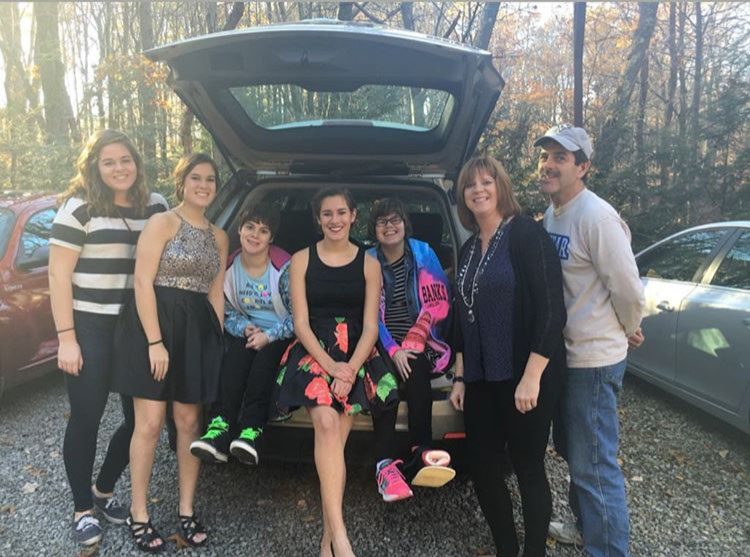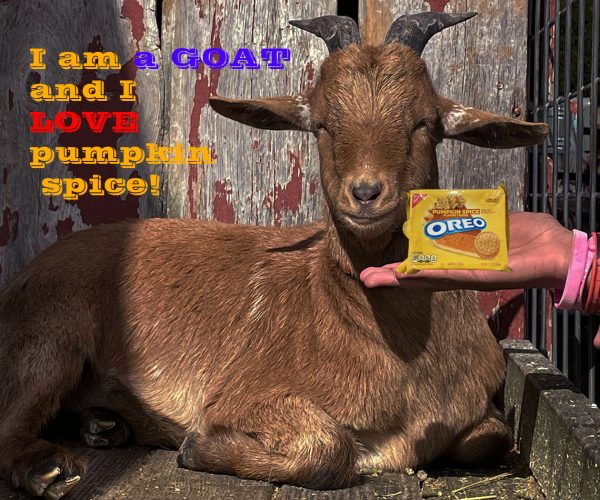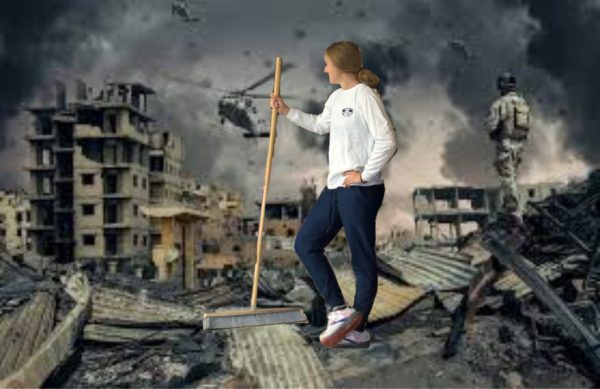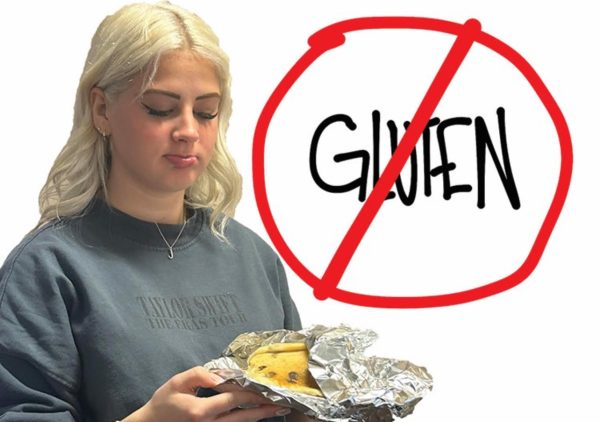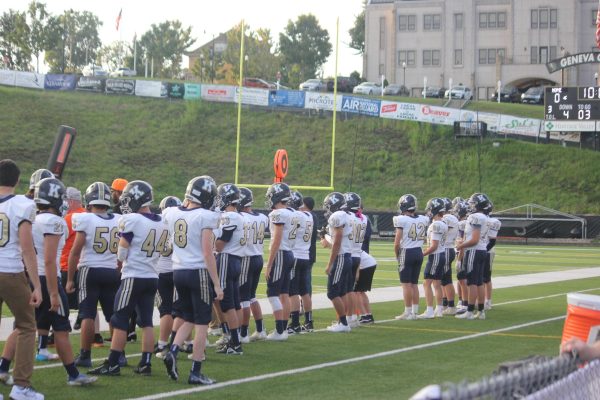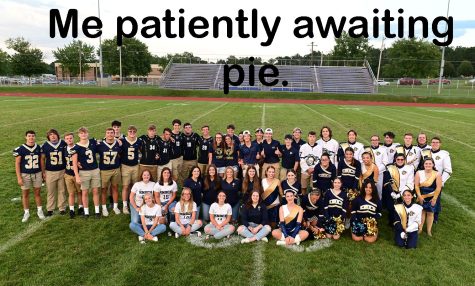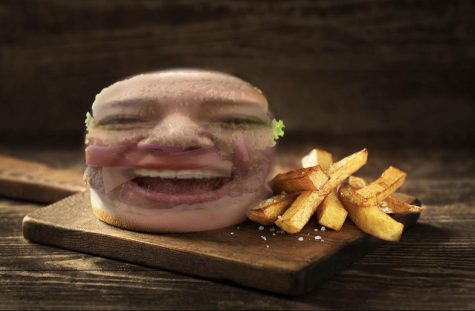Sibs of Kids with Disabilities
Before I begin I would like to state that in no way am I proposing that there is an issue with the way disabled children are generally treated over their normally-functioning siblings. I am merely shining a light on emotional and psychological effects that I, among other students, have obtained while growing up in a modified household. Thank you for your understanding.It is no secret that I am an emotional being. Whether an occurrence is positive or negative, my response to the situation is seldom small-scale. Because of this, I was always accused of having “last child syndrome”, basically saying I would do anything for attention. I had two older brothers. Ian, who is hearing, and Alec, who has been profoundly deaf since the age of two after suffering from meningitis. Regardless, I was “always trying to steal the light”.
Lots of students with disabled siblings experience this accusation some time in their life. Some outgrow it. Some experience variations of this, such as middle/oldest child syndrome.
I had always noticed my brother was treated differently. People would usually wave their hands in some intricate fashion and expect Alec to tell them what it meant. He was treated like a freakshow at some points.
Senior Mary Gall , who has two sisters who have both been diagnosed with Cerebral Palsy, notes the first occasion she realized people treated her siblings differently.
“I think someone called her a retard,” Gall said. Cerebral Palsey can affect people physically and intellectually. The Galls hacv experienced both.
Though disabilities provide an array of different challenges and obstacles for the entire family, siblings tend to internalize a positive trait from them.
Junior Tyler Gray has a younger sister, Caitlyn, with Down Syndrome. He says that he always notices how other people act towards kids with disabilities, perhaps more than people without a disabled sibling would.
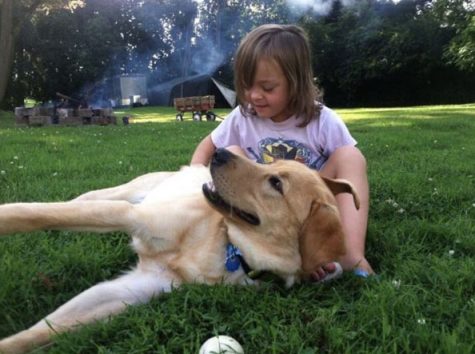
“The most positive effect wo
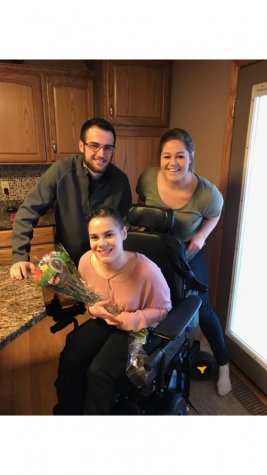
uld be learning how to accept those around you who are not like anyone they’ve ever known,” said Mrs. Velesig.
Mrs. Velesig, mother of junior Emma Velesig, has experience working with families of children five years or younger with disabilities. She notes that there are many favorable effects that are bestowed upon these children. Conversely, there are numerous negative effects.
However, unlike many siblings of disabled children, Tyler Gray finds no issue with the way people are concerned about his sister before they are concerned about him.
“She just needs a little more attention,” Gray said.
When children are younger, they are able to attempt to get their parent’s attention without seeming malicious or obsessive.
“Children are so great at observing what is happening around them and the reactions of others, that they will mimic behaviors to get the same response,” said Mrs. Velesig.
So if a young girl who has a speech disorder accomplishes the task of saying a difficult word, the brother of that child might attempt to “one up” his sister by pronouncing a larger word.
This kind of give and take can be contained in such a small setting, but when these children grow up into their young adolescents, problems can arise. This is where the alleged “attention seeking” begins. Their behavior changes, sometimes negatively and sometime’s positively.
“For the most part, the attention seeking behaviors of siblings are not to be mean spirited or harmful in any way,” said Velesig.
“It is important to help parents recognize ways to give the sibling without special needs the attention they may crave before they act out,” she continued.
I would always have my occasional fit of crying, or cutting my bangs so my mom would tell me I’m pretty, but it came to an end when I was about 10. Gall also reports that she may have acted out when she was younger, but it stopped pretty early on.
Gray said that he has experienced his accomplishments being slightly undermined compared to his sister’s.
“It’s understandable, she needs to be encouraged to keep doing well because she gets distracted,” he said.
The problem is; what happens when the sibling grows up and cannot act out anymore? Where do these emotions go? How do they cope?
I have always been supportive of my brother, of course. But I have always subconsciously taken note of the things he has been recognized for in comparison to myself. For instance, when Alec graduated from high school, The Butler Eagle published a story about him just for completing high school.
How am I supposed to compete with my siblings when all he has to do is graduate? Where does that leave me? I, among many other siblings turned to sports in order to make a name for themselves in their own family.
“Sometimes siblings can become withdrawn and hesitant to try new things, for fear of disappointing or failing their parents. Older children can become hypervigilant in school or sports fearing that if they fail, it will be one more thing that their parents need to deal with,” said Velesig.
There is distinct correlation between depression, anxiety, and other emotional distress and children who have disabled siblings.
Velesig encourages these siblings to find an activity that they really enjoy.
Remember, you are as valid and important as your sibling. You will grow and flourish. You are loved.

